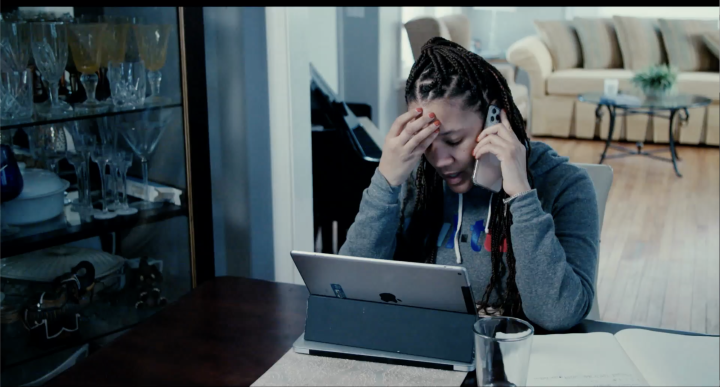
I have been reading about “Undesign the Redline,” an exhibit that shows how redlining shapes our economy today.
A bit of historical context: Between 1935 and 1940, agents of the federal government’s Home Owners’ Loan Corp. graded neighborhoods by their “mortgage security.” An A grade meant you were more likely to get financing; a D meant the neighborhood was “hazardous.” Those grades also happened to correspond with the income level and racial makeup of the neighborhoods and made it difficult for immigrants and Black people to get mortgages to buy their own homes.
When the exhibit came to Evanston, Illinois, in 2019, among the displays was an enlarged map of the Chicago-adjacent city, highlighting where most Black residents ended up living after the 1930s. The neighborhoods were shaded red, with a D grade.
It didn’t used to be that way.
“This exhibit helps explain how a permanent or long-standing African American community was developed when in 1900 there was no such thing as a Black community, a Jewish community, a German community, a Polish community,” exhibit designer and nonprofit leader Morris “Dino” Robinson Jr. told the local news site Evanston RoundTable. “Everybody lived everywhere. From 1900 on, through the present day, there was a concerted effort to move ethnicities into certain parts of Evanston.”
In other words, structural racism distorted a naturally more integrated town to push Black people into one area.
In 2021, Evanston approved the first reparations program for the segregation and disenfranchisement imposed on Black residents. The effort was led by then-local alderman Robin Rue Simmons, a central figure in our Econ Extra Credit documentary this month, “The Big Payback.”
The system in Evanston remains controversial, with both support and opposition coming from within and outside Evanston’s communities of color, a diversity of opinion the documentary makes very clear. Some supporters question whether Evanston’s system should be called reparations at all. Still, the program, which grants $25,000 in housing assistance to people who have experienced housing discrimination, gave a boost to other communities around the country working on their own reparations.
It is interesting to see how Rue Simmons and other leaders in Evanston chose to construct its system, given potential legal hurdles. The 14th Amendment to the U.S. Constitution includes a famous clause that provides all people “equal protection of the laws.”
Originally conceived to stop discrimination against Black people, it is now frequently used as a legal lever to stop affirmative action to remedy past discrimination. As Evanston worked on a plan for reparations, a city attorney invoked a similar case in Richmond, Virginia. In 1989, the U.S. Supreme Court overturned a requirement for a portion of city contracts go to minority-owned businesses.
With the 14th Amendment in mind, the high court found that Richmond had not provided evidence that the city had a history of discriminating against minority contractors. In Evanston, officials understood that they had to show how past actions by the city had led to housing discrimination to pass legal muster.
— David
Have you watched the film yet?
“The Big Payback,” is available to stream for free on PBS.
Check out all our past selected films on our website.
More from the show
Redlining has been illegal for decades, but an exhibit traveling around the country aims to show how that policy continues to shape our economy today.
There’s a lot happening in the world. Through it all, Marketplace is here for you.
You rely on Marketplace to break down the world’s events and tell you how it affects you in a fact-based, approachable way. We rely on your financial support to keep making that possible.
Your donation today powers the independent journalism that you rely on. For just $5/month, you can help sustain Marketplace so we can keep reporting on the things that matter to you.












